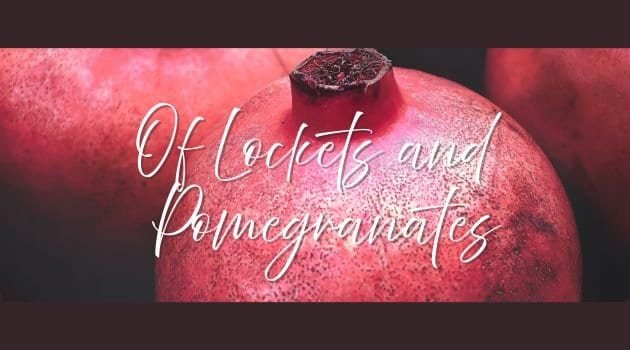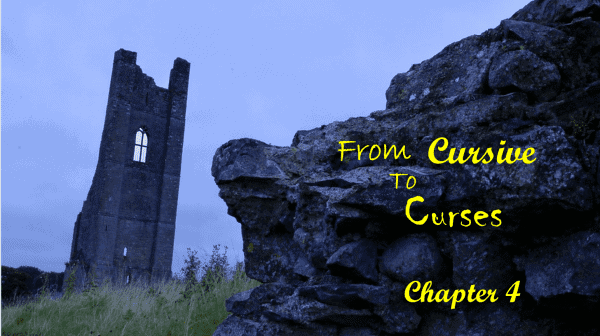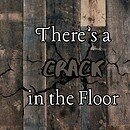Southern Ways – Part 5

- Southern Ways – Part 1
- Southern Ways – Part 2
- Southern Ways – Part 3
- Southern Ways – Part 4
- Southern Ways – Part 5
- Southern Ways – Part 6
- Southern Ways – Part 7
- Southern Ways – Part 8
- Southern Ways – Part 9
- Southern Ways – Part 10
- Southern Ways – Part 11
- Southern Ways – Part 12
- Southern Ways – Part 13
- Southern Ways – Part 14
- Southern Ways – Part 15
- Southern Ways – Part 16
Ralph stood at the top of the staircase, with a sense of enthusiasm, holding his golf shoes and glove.
“Weren’t you in the parlor a minute ago?” I glanced up at him.
“What? No. I have a tee time at nine. After last night’s shenanigans, I’m running late. What did you want to talk about? Can it wait until I get back this afternoon?” He picked up his golf bag and slung it over his shoulder. “Sorry.” Ralph brushed past me and gave me a peck on the cheek.
“I guess,” I said as he walked out the door.
“Promise. I’ll be back by three at the latest.” He yelled as he got into his car.
Boy, he sure is in a jovial mood. It’s possible Ralph isn’t responsible for the drugs last night. Is my mind playing tricks on me again?
I shook my head, closed the front door, and headed toward the kitchen to find some much-needed coffee. Emma, the housekeeper, emptied the dishwasher and placed everything on the cluttered countertop.
“Morning, Emma. Just grabbing a cup of coffee, and I’ll be out of your hair.”
“No worries, miss. I’m moving a little slow myself today. That was some celebration, eh?” she said, smiled.
“Unlike any I’ve ever attended.” I chuckled.
“Yes, me too. The house is too quiet now. Ms. Rosie made working enjoyable. May I ask you a question, miss?”
“What is it, Emma?”
“Do you think Mr. Ralph will keep the staff on?”
“Hard to say. This house is too large for one person to manage. I’m meeting with him this afternoon. Let me ask, and I’ll let you know.”
“Thank you, miss. The staff needs to know if they should find new employment.”
“I understand.” Coffee in hand, I grabbed more photo albums from the dining room. The funeral was over. I continued my search for the dark-haired woman.
We must find her before the séance.
I settled in the parlor on the settee, the photo albums on the table before me. I flipped through one scrapbook and found a handwritten note between two photo-less pages:
‘Beware. Plate-Eye spotted in the marsh. Slaves refuse to work fields near water. Papa is in a panic and unsure of what to do.’
The next page had another message scrawled across a picture of a group of black men and women holding gardening tools.
‘After talking to Mr. Lewis, Papa supplied each slave with a burlap pouch filled with sulfur and gunpowder. A piece of hemp rope looped through the top so they could wear it around their neck or on the drawstring of their britches. It was the best way to ward off plate-eyes, according to Mr. Lewis, because they hated foul smells. This new group of slaves has brought many superstitions with them.’
What the heck is a Plate-eye? It mentioned nothing else throughout the rest of the book. Curious, I reached for my iPad, hoping I could search the internet for any mention of Plate-eye.
Numerous articles covered these little devils. As a West Indies and southern United States folklore, Southern slaves embraced these superstitions, especially the Gullah. Plate-eye, sometimes spelled Plat-eye, was a shape-shifting spirit of the murdered. Their large, glowing eyes, said to be as big as plates and blood red, characterized them.
These Plate-eye stories became especially prevalent after the Civil War, when rumors thrived that plantation owners had buried their Confederate money to keep it away from the Union army. In some tales, a slave’s beheaded body was buried with the treasure. His restless spirit would then become the guardian of the loot.
Could that be what was stalking me? It says it could be a shape-shifter. Are the woman and the face in the parlor window a plate-eye in disguise?
Why would it want to terrify me? What did I have? Did Aunt Rosie know about this? These were her scrapbooks. She must have known about this folklore. There is a plethora of questions and nowhere to turn.
I sat back with a heavy sigh. Was I wasting my time? Should I go see the old crones? They wanted to induct me into their little group. Could they possibly help me? My need to find answers outweighed my hesitation to join their spirited circle. In an instant, the answer became obvious.
The book closed with a loud thump. I stood up and headed toward the front door. “Emma, I need to run an errand. I’ll be back before three.” I rushed out to my car, not waiting for an answer. Liz had given me her number, and I searched through my contacts. Her number was under ‘Head Crone.’ I selected it, and as my car headed down the dirt driveway to the street, she picked up on the first ring.
“Yes, Savannah? I’ve been expecting your call.”
She must have me in her phone. How did she know I was calling? Right. She’s a witch.
“Well, more like I was hoping you’d call, dear. How can I help you?”
“Do you have time to meet with me today?”
“Of course, I do. I’d always make time for you.” She replied.
“Send me your address. I’m on my way.” I pulled over to put her address in my GPS.
Getting to Sea Island, where Liz lived, took me an hour and a half. A sprawling mansion set steps from the beach. Nothing like I had pictured. In my mind, Liz lived in a gingerbread cottage deep in the woods, like the witch in Hansel and Gretel.
The circular driveway took me straight to the front door. The double doors were open as I stepped up onto the veranda. A typical southern porch with rocking chairs, a swing, and a bistro table, where an elegant tea set with a pot and two cups sat out. Large Boston ferns and flower pots filled with lavender, rosemary, daisies, and purple coleus hung from the fascia, and a cool ocean breeze swept through the openings like air conditioning.
As I looked around, Liz appeared in the doorway. She was as eccentric as Aunt Rosie. Her black dress flowed with the breeze, and her long, white hair, pulled back away from her face with a stretchy headband, made her look exotic.
“There you are, dearie. Any problem finding it?” she asked.
“Not at all. You have a beautiful place here.”
“Thank you. It’s been in my family for generations. It seems we make a few tweaks with each descendant to fit into modern times. I’ll show you around later. Shall we have tea on the veranda?” She motioned toward the bistro table.
I followed her lead. Once we poured our drinks, we sat in the rocking chairs that faced the lush landscaping. My eyes took in all the beauty surrounding me. As I glanced up at the fans twirling around, I noticed the ceiling was painted green/blue.
Liz followed my gaze. “To ward off benevolent spirits. The color is called haint or what the enslaved people called ‘spirits.’ They believed these evil beings could shed their human forms to terrorize innocent victims at night, injuring or even killing them. Using haint blue, attempted to trick the entities into thinking they’d happened upon a body of uncrossable water or sky. They thought it would disorient the ghost and prevent them from capturing another victim. Did you notice my collection of empty blue glass hanging from the trees?”
Though I had admired her landscaping, I failed to notice the now visible glistening blue bottles in the trees swaying with the wind.
She continued, “The folklore doesn’t stop there. It is believed if you adorn your trees with empty blue glass bottles, it will trap their souls.”
“What a wonderful story,” I exclaimed, taking a sip.
“Oh, it’s not only a story, my dear; it’s true.” Liz set her cup down and looked at me.
“Now, tell me, what is so urgent?”
“I’m seeing apparitions.” I blurted out.
“How do you know what they are?” she asked.
“Because I see them, and then they disappear into thin air.”
“Describe them to me.”
“The one I’m trying to find has dark hair, pretty, about my age. I’ve been going through Rosie’s photo albums, old ones, looking for someone who may be related.”
“Oh, you won’t find any pictures of her.”
“You mean, you know who she is?” I sat up straighter in my chair, leaning toward the table.
“Yes, of course I do. The spirit attached herself to your aunt, and it seems she has done the same to you.”
“Tell me everything about her,” I said excitedly.
“Her name was Dahlia, and her parents didn’t believe in painting one’s portrait. They felt it stole the soul. She was a beautiful girl who unfortunately lived during the witch hunts in the 1600s. Her family raised her as a Puritan, but some school friends envied her beauty and kindness. The other children teased her relentlessly. They’d follow her home, pull her hair, throw rocks at her, and she’d take it. Never a cross word left her lips and always a smile.”
“But this one day, while walking home from school, one boy threw a rock and hit her on the head. The sight of the bleeding wound frightened the other children, so they ran home. When Dahlia fell unconscious, her father went out looking for her when she didn’t come home from school. He found her lying right where she had fallen. Picking her up gently, he put her in the cart and took her home.”
“Dahlia’s mother summoned a neighbor, Clementine. She brought with her herbs and poultices to help close the wound. She was in a coma and stayed asleep for several days afterward. When she woke up, she wasn’t the same little girl. Her moods were sullen, and she told her parents she no longer wanted to return to school. Her parents kept her home, and taught her everything she needed to know about cooking, sewing, and tending to the animals on their tiny homestead.”
“In her spare time, she would visit with Clementine, who taught her to be a healer. As she matured, many a suitor came to ask for her hand. But she refused them all. This made the townsfolk suspicious, and tongues wagged.” Liz took a sip of her tea. “Every town back then had a witch’s council. When they heard about Dahlia, they sent a spy to watch her daily movements. They reported back that Dahlia and Clementine spent much time together. Since the latter was already on their radar, Dahlia’s name was added to the list.”
“Rumors flew through the town. Their relationship disgusted the elders. Dahlia had shunned one man in the council. His ego hurt; he was determined to see both perish. When the order came down for the women to be brought in front of their peers, they burst into Clementine’s cottage early one morning, where they were found sleeping together.”
“The biased jury quickly found them guilty of indecency and witchcraft. They burned both at the stake the following morning.”
“Oh, my God. How awful.” I exclaimed. Tears filled my eyes.
“Her spirit has been restless ever since. Your aunt is the one who researched Dahlia when she appeared to her. It seemed she had a message to deliver.”
“What type of message?” I asked.
“Your aunt never found out. Perhaps she wants you to deliver it now?”
Editor: Michelle Naragon








